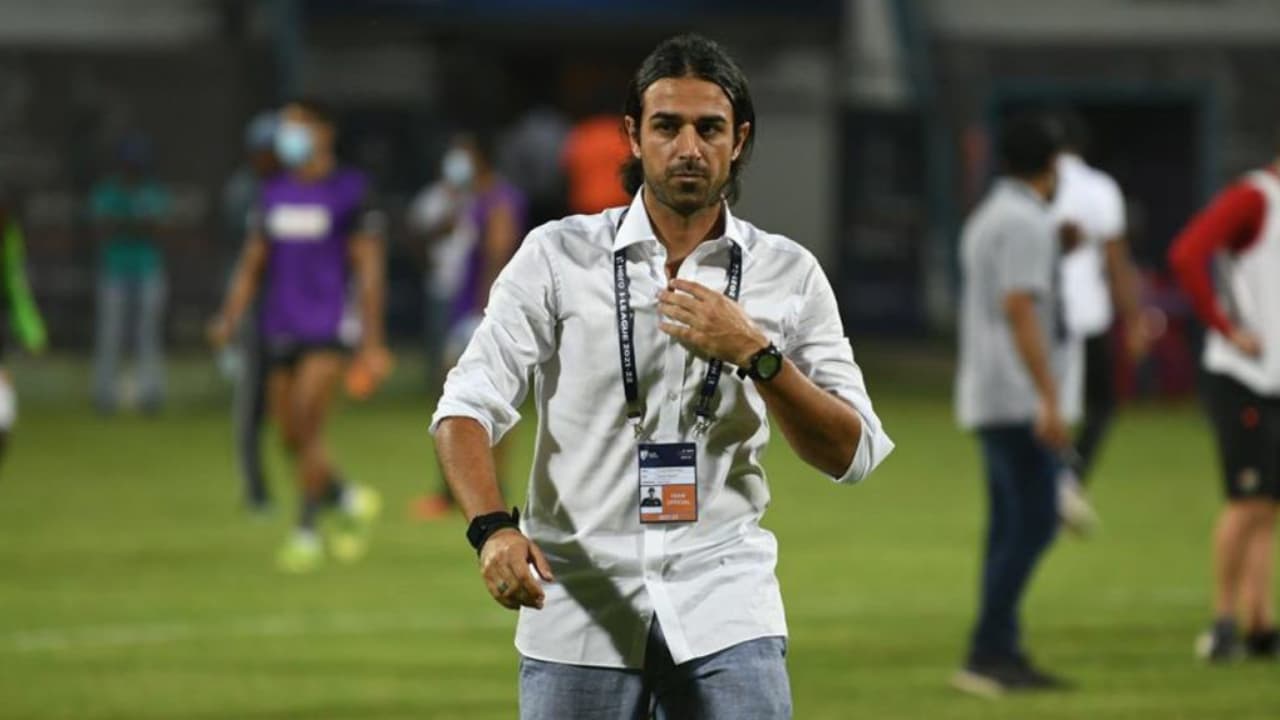India’s third-place finish at the CAFA Nations Cup under Khalid Jamil offers a glimmer of hope, but Afghanistan coach Vincenzo Alberto Annese believes tactical evolution and development are crucial for long-term success.
India’s recent third-place finish at the CAFA Nations Cup has offered a glimmer of optimism for the future under newly appointed head coach Khalid Jamil. Going into the competition as outsiders, the Blue Tigers surprised many by defeating Tajikistan, drawing against Afghanistan, and eventually overcoming Oman-ranked 79th in the world-on penalties to secure a podium finish. Their only loss came against heavyweights Iran. While it was a commendable run, former Gokulam Kerala boss and current Afghanistan national team coach Vincenzo Alberto Annese believes India still has a long way to go in terms of tactical evolution and football development.
India’s Campaign Through the Eyes of Annese
For Annese, who knows Indian football well after winning the I-League twice with Gokulam, the encounter against India in the tournament carried a personal note of nostalgia. He was delighted to see familiar faces like Jithin MS and Uvais Muhammed, two of his former players, now representing the national side. But while the result ended in a draw, Annese felt Afghanistan had been the stronger of the two teams.
He explained that Gurpreet Singh Sandhu’s heroics were the biggest reason India walked away with a point. “Some of the saves were extraordinary—the kind you almost never see at this level,” Annese observed, suggesting that India owed much of their campaign’s success to their goalkeeper’s brilliance.
Tactically, Annese saw India adopt a defensive mindset, sitting back and looking to strike on counterattacks. Afghanistan, in contrast, dominated possession-by his estimation over 70 percent-and continuously pressed for openings. While acknowledging Jamil’s lack of preparation time with the squad, Annese felt the national side needs to embrace a more positive, possession-based style of play in order to grow.
Khalid Jamil and the Road Ahead
Annese was clear in his view that while Jamil has enjoyed significant success at the club level, the current approach of heavy defending and reliance on long balls is not sufficient to build the kind of team India aspires to be. “This may get results in the short term, but it doesn’t develop football,” he said, warning that India must think long-term if they are serious about reaching a future World Cup.
Pointing to examples like Iran and Uzbekistan, Annese noted how these nations have evolved tactically and produced versatile players who can adapt across roles. India, he argued, needs to follow a similar model if it wants to bridge the gap at the continental level.
Lessons from Afghanistan’s Growth
Speaking about his own current challenge with Afghanistan, Annese shed light on the difficulties of running a national side whose players are scattered across 14 countries, many of them dual nationals based in Europe. Despite political challenges at home, Afghanistan’s football federation has pushed ahead, reviving its domestic league in 2021 and seeing clubs like Abu Muslim FC step onto the AFC stage, even if results remain modest. For Annese, the task has been one of building identity and encouraging players from diverse backgrounds to chase a shared ambition.
Indian Football’s Bigger Questions
Looking at the broader Indian setup, Annese emphasized two pressing issues: talent development and league reform. While the Indian Super League has grown in visibility, he believes the I-League remains the place where raw Indian talent is most visible, as ISL tends to depend heavily on foreign stars. Jamil’s decision to scout and select players from the I-League, Annese argued, was a significant positive.
At the same time, Annese strongly advocated for the introduction of promotion and relegation in the ISL. In his view, this change is critical to improving competitiveness and ensuring clubs don’t settle into comfort zones. “Relegation creates hunger-everyone fights harder, and quality rises,” he said.
The Chhetri Conundrum and the Future
The absence of a clear successor to Sunil Chhetri remains a central concern. Annese believes Indian football authorities must encourage more attacking talent to emerge through league reforms or incentives. He insists that, while Chhetri’s legacy is unquestioned, India cannot afford to linger in the past.
Despite voicing criticism of the current tactics, Annese praised Khalid Jamil as a capable coach who will likely improve the team once given more time and space to implement his ideas. For India to move closer to its dream of playing at a World Cup, however, it must embrace a forward-thinking, possession-based brand of football that maximizes its technical talent.
Annese concluded reflectively, reminding readers that he once applied to coach the Indian national team. He left the door open, saying that perhaps one day, he might still get the opportunity to lead the Blue Tigers himself.
